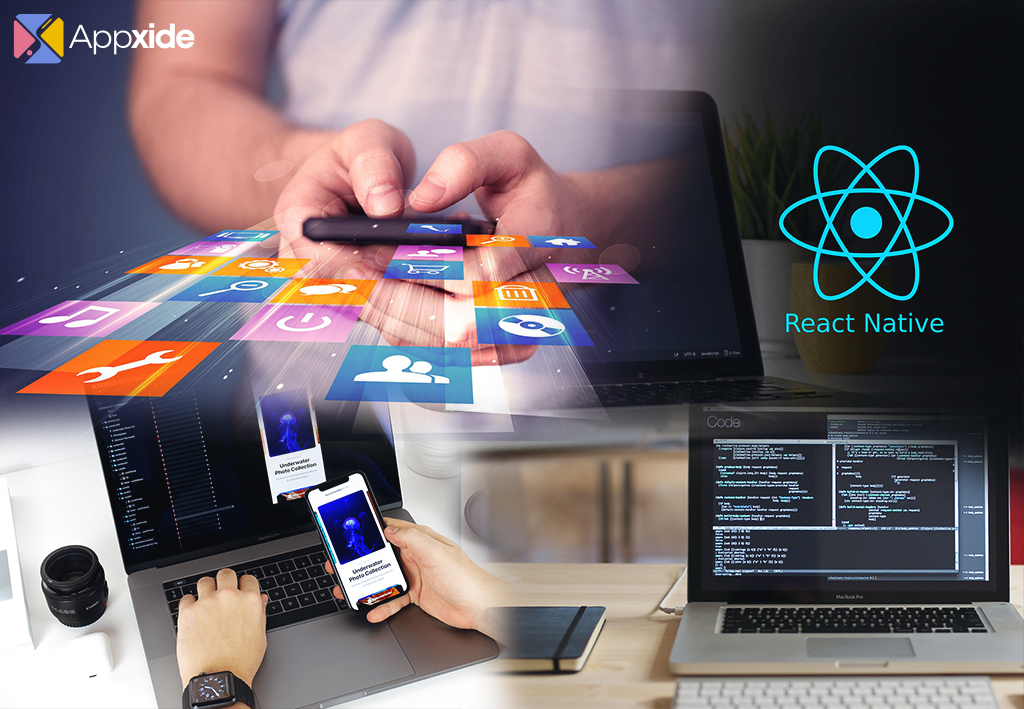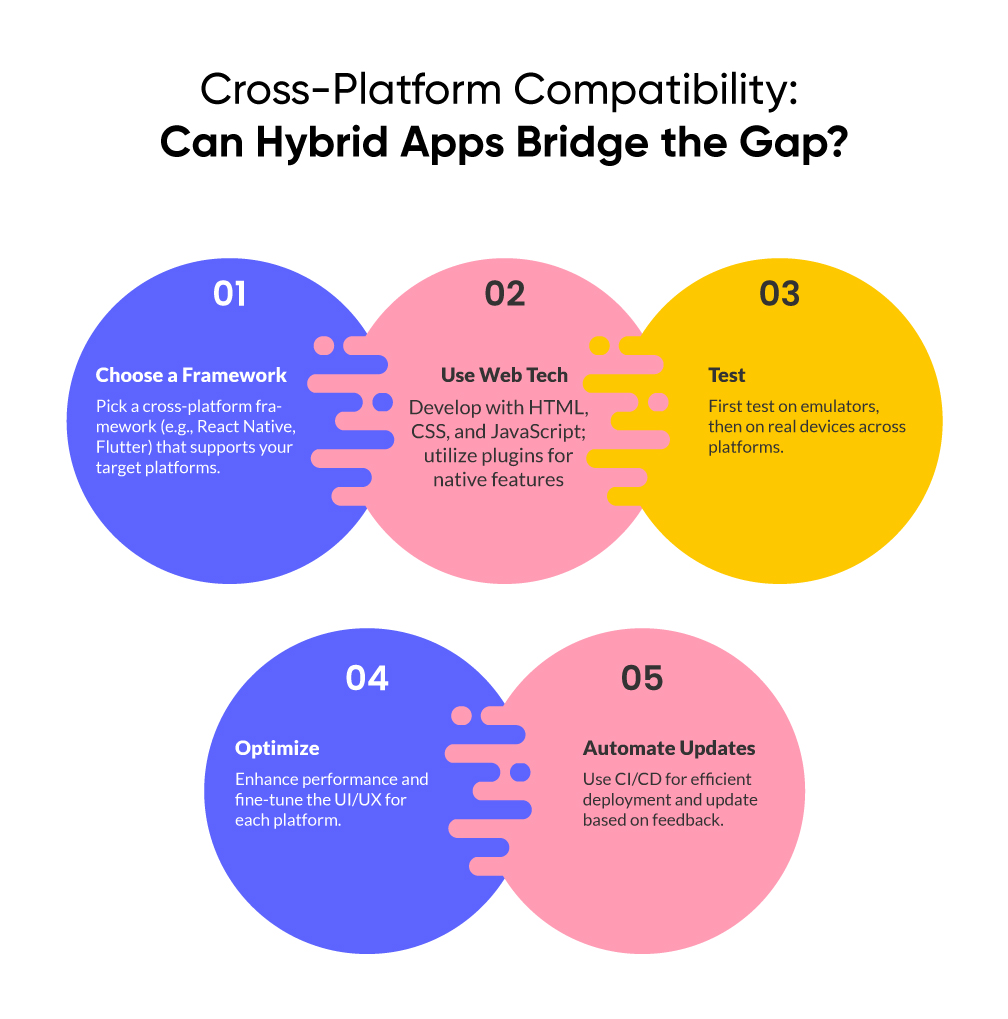Let's Get You Started

Let's Get You Started




Stop getting confused when the debate of Hybrid App Development vs Native takes center stage. This exploration goes beyond a mere technological competition; it’s an insightful journey into the core of each approach, revealing how they uniquely adapt and contribute to our constantly evolving digital world.
First, let’s lay down the foundation. What are we talking about when we say “hybrid” and “native” apps?
To keep yourself safe from any sort of trouble. It’s crucial to understand the current market trends and popularity of hybrid and native apps. This following table not only helps developers and businesses make informed decisions but also offers a glimpse into the future trajectory of native vs hybrid mobile app development.
| Aspect | Native Apps | Hybrid Apps |
| Consumer Preferences | Preferable for seamless, intuitive experiences | Gaining traction for cross-platform functionality |
| Market Share & Adoption | Chosen in industries like gaming and finance | Popular in sectors like e-commerce and media |
| Technological Advancements | React Native, Flutter blurring lines with hybrid apps | Encourages a balanced approach in app development |
| Future Outlook | Remains essential for performance-heavy apps | Increasingly preferred for its flexibility and reach |

Now that we have a basic understanding, let’s delve deeper into the differences.
| Feature | Native App | Hybrid App |
| Performance | High (Optimized for the platform) | Moderate (Depends on the framework) |
| Development Cost | Higher | Lower |
| Development Time | Longer (Separate for each platform) | Shorter |
| User Experience | Superior | Good (Improving with technology) |
| Access to Device Features | Full | Limited (Improving) |
| Maintenance | Requires more effort | Easier (Single codebase) |
Making a choice between hybrid and native apps can often seem like navigating a complex labyrinth. This section aims to provide clarity and guidance, helping you make an informed decision that aligns with your specific project goals.
As we navigate the ever-changing seas of hybrid app development vs native, it’s essential to cast our gaze forward and explore the future prospects and evolving technologies that are set to redefine the landscape of hybrid and native app development.
The app development industry is on the cusp of a technological revolution. Cutting-edge advancements such as Artificial Intelligence (AI), Machine Learning (ML), and the Internet of Things (IoT) are poised to dramatically alter how apps are developed and interact with users.
AI and ML integration in app development is not just a trend but is becoming a necessity. These technologies enable more personalized and user-centric experiences, whether it’s through intelligent chatbots in hybrid apps or predictive analytics in native apps.
IoT, with its network of interconnected devices, opens up new frontiers for app developers. The ability to integrate and communicate across various devices offers enormous potential for both hybrid and native apps, particularly in areas like home automation, healthcare, and industrial management.
The boundaries between native and hybrid app development are becoming increasingly blurred with the advent of sophisticated cross-platform development tools. Frameworks like Flutter and React Native are at the forefront of this change, offering the ability to create apps that are nearly indistinguishable from native apps in terms of performance and user experience.
These tools are not just bridging the gap in terms of functionality but are also making app development more efficient and accessible. This democratization of app development means a more vibrant and diverse app ecosystem in the future.
With the growing reliance on digital solutions, security and privacy concerns are taking center stage. Future app development will likely emphasize enhanced security protocols, particularly for native apps that deal with sensitive user data.
The evolution of data protection laws and user awareness around privacy will also shape how apps are developed, with a greater focus on secure data handling and user consent, regardless of whether the app is native or hybrid.
Another emerging trend in the tech world is the focus on sustainability and green computing. Future app development might incorporate eco-friendly practices and designs, aiming to minimize the digital carbon footprint.
This shift could influence everything from the coding practices used in native app development to the energy efficiency of the servers hosting hybrid apps.
Let’s look at some real-world examples to understand how businesses make their choice:
As we wrap up, let’s address some common questions:
Q1: Do hybrid apps work as good as native apps?
While hybrid apps have made significant strides, native apps still lead in performance, especially for graphics-intensive applications.
Q2: Is it cheaper to develop a hybrid app?
Generally, yes. The single codebase approach of hybrid apps reduces development and maintenance costs.
Q3: How long does it take to develop a native app compared to a hybrid app?
Native apps usually take longer to develop since they require separate development for each platform. Hybrid apps, with their single codebase, can be developed and launched more quickly.
Q4: Can hybrid apps access all the features of a smartphone?
While they have limitations, modern frameworks are increasingly bridging the gap, allowing more access to device features.
Q5: Which is better for gaming applications?
Native apps are typically preferred for gaming due to their superior performance and access to device capabilities.
Both hybrid and native app development have their places in the digital ecosystem when it comes to hybrid app development vs Native. The choice largely depends on your specific needs, budget, and target audience. Understanding the difference between hybrid app and native app is key to making the right decision for your app development journey.

Welcome to Appxide, where innovation meets utility in the world of app development. Our mission is to craft cutting-edge digital solutions that simplify lives and spark connections. With a diverse portfolio that traverses multiple sectors, we are committed to excellence and user-centric design. Stay tuned to our blog for the latest in tech, insights, and the stories behind our projects. Dive into the future with us – where every app we create is a step towards the extraordinary.